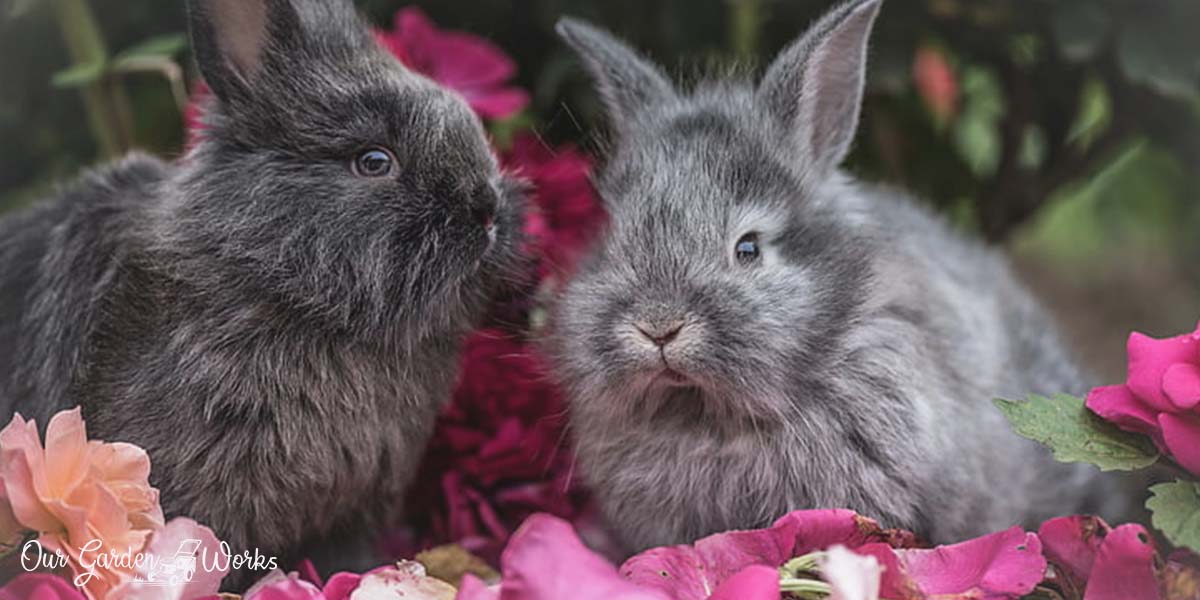Filling your salad bar with your homegrown garden vegetables is a great thing. However, it’s a whole different story when something else gets to eat them before you get the chance to enjoy it.
It can be quite disheartening when you find your rows of slowly growing vegetables are cleared out in a day. Rabbits may be cute and fluffy but they can be one of those critters who have been feasting on your plants.
But unlike in the children’s cartoon shows, rabbits do not only eat carrots and other vegetables but also flowers as well.
In fact, they are even undeterred by thorns. So are your rose bushes in danger of being eaten by rabbits?
Find out below if rabbits eat roses.
Do Rabbits Eat Roses?
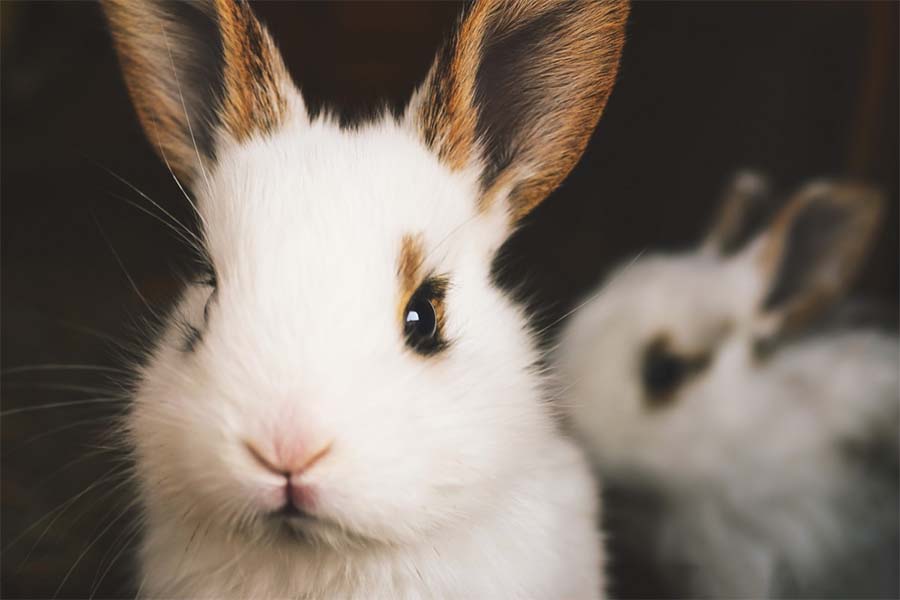
Yes, Rabbits do eat roses.
In fact, they love them. Roses may be a hardy perennial, but when faced with this hungry herbivore, expect noticeably barer rose bushes. They are undeterred by its thorny branches and will happily eat everything, including its prickly stems and leaves.
Rabbits are more attracted to younger rose bushes where the buds are still close to the ground. If you have older ones, they will most likely nibble on what they can easily reach – the stems and leaves.
However, if there is little to no food, they can eat almost anything which will give a great deal of damage to your garden. Furthermore, rabbits are particularly attracted to plants that are part of the rose family or Rosaceae.
These are:
Ornamentals
- Cinquefoil
- Avens
- Goatsbeard
- Burnet
- Pearlbush
Crops
- Strawberries
- Raspberries
- Blackberries
- Pears
- Apples and crabapples
- Loquat
- Cherry
- Plum
So, if you are raising a bunny or planning on attracting wild ones, these plants are safe for them to eat and will surely attract them.
When Do Rabbits Usually Visit Your Rose Garden?
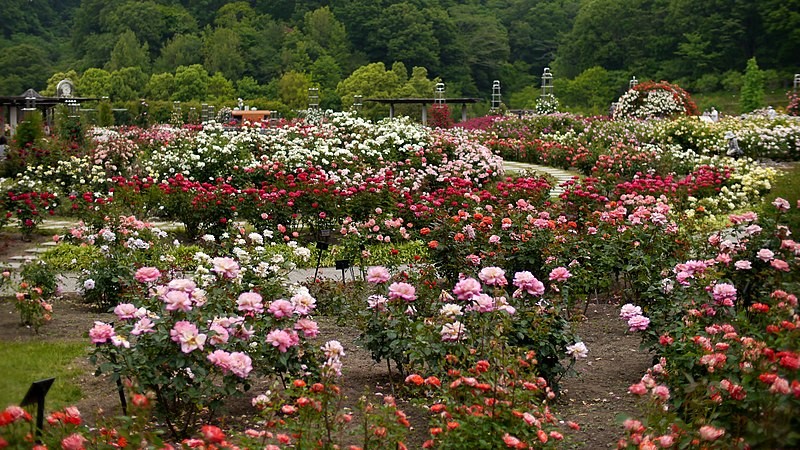
Seeing rabbits in your garden is a sign that spring has finally arrived.
Have you ever heard of the line, “Rabbits go crazy in spring?”. These fluffy animals are infamously most active in March because it is their mating season.
Although they can reproduce almost all year round, spring is generally their highest point of activity. You will constantly see rabbits out and about looking for potential mates. After they’ve found a potential partner, they will start building their nests and burrowing.
They will also consume more food during this season. Though their feeding method is not harmful, it can delay the growth of plants. Young and budding plants in particular are their favorites.
For gardeners like you, this is bad news. Bunnies can be quite destructive during this period. So, most gardeners start laying preventive measures in early March to stop that from happening.
You might like: How to Get Rid of Pavement Ants Easily and Effectively?
How to Know if Rabbits Have Invaded Your Rose Garden?
Rabbits may be cute but can become quite pesky. Plus, one wild rabbit can bring in others. With the variety of critters around, how do you know if these cute pests have invaded your garden? You might even see some running around your yard.
Here are other signs that rabbits have made a home in your garden.
Large Holes
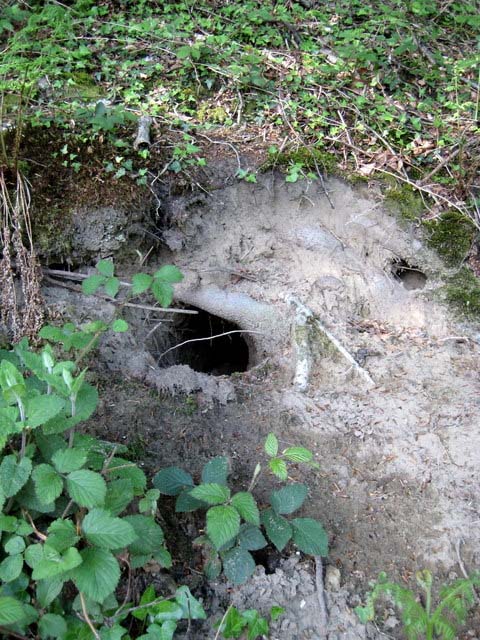
One of the telltale signs that a rabbit is staying in your garden is the presence of large holes on the ground. Unlike hares which create nests above ground, bunnies burrow underground. They do this to create holes leading to their nests and the areas that they frequently visit.
They can practically dig long channels of tunnels underground. However, when they do this, it will destroy your yard.
Droppings Everywhere
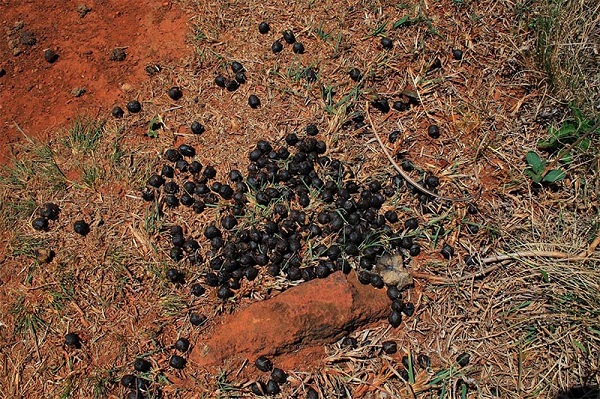
When you see green or brown pellets that are about a quarter of an inch big all around your yard, then bunnies have started to stay in your yard. You will especially see plenty of droppings in places near their burrows or the areas that usually go to.
Although they don’t really have a bad odor and break down easily, it can still be hard for you to rake them. Plus, they can carry bacteria that can cause diseases like Leptospirosis, Salmonella, Tularemia, and many more.
Damage to Plants
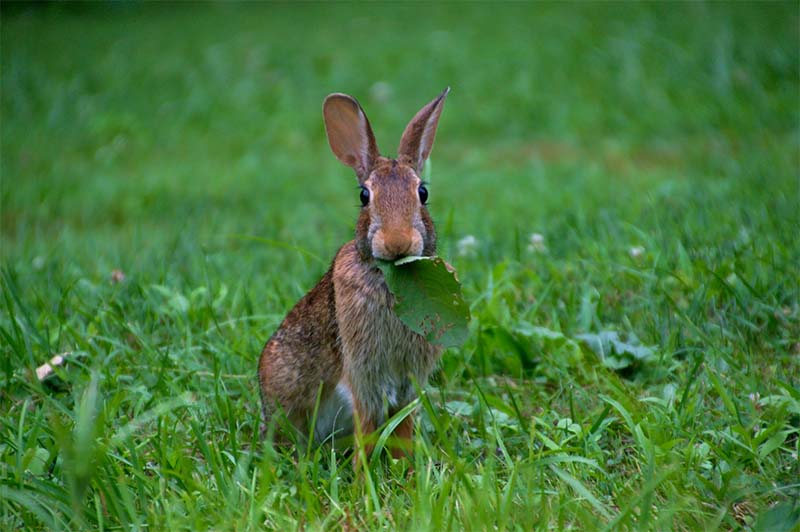
Rabbits bite on barks and stem at about a 45-degree angle leaving cleaner cuts. You will usually see bite marks made by their sharp incisors. Unlike deers who have to twist and pull branches or leaves first for them to chew.
The height of the damage is also another indicator. If your rose shrubs have more damage on branches that are closer to the ground, this is likely done by bunnies. If most of the damage is done at the top of the shrubs then it could be the work of deers.
Carcasses
Although this may not always happen, there are times that you can see rabbit carcasses in your yard. These are usually ones that have fallen prey to predators like cats, dogs, or other animals.
Finding a dead rabbit can be an indicator that these pests have started to stay in your garden.
You might like: How to Get Rid of Grasshoppers with Vinegar? A Step-by-Step Guide
How to Stop Rabbits From Eating Your Roses?
There are plenty of ways for you to prevent rabbits from staying in your yard. The following are some steps that you can take to effectively do so.
1. Fence Off Your Rose Garden
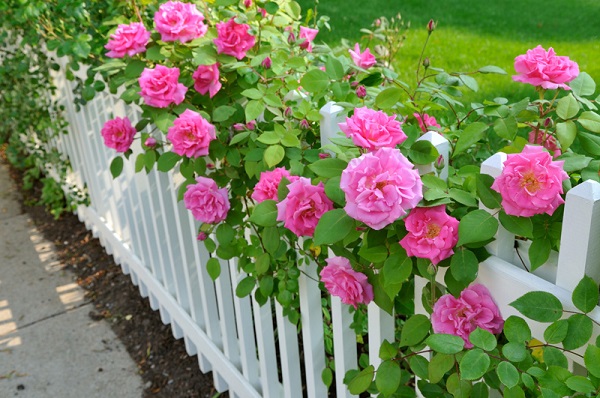
The surest way for you to stop rabbits from feeding off your roses is to surround your garden with a fence.
Generally, a rabbit can jump as high as four feet. So it would be safer for your plants to have a fence that is three feet or higher.
A wire mesh is a great material you can use to barricade the garden. When installing the fence, leave an extra five to eight inches at the bottom.
Bend the extra length to a 90-degree angle or an L-shape. This is to discourage the rabbits from digging near the fence to enter the garden.
2. Raise Your Rose Bush Beds
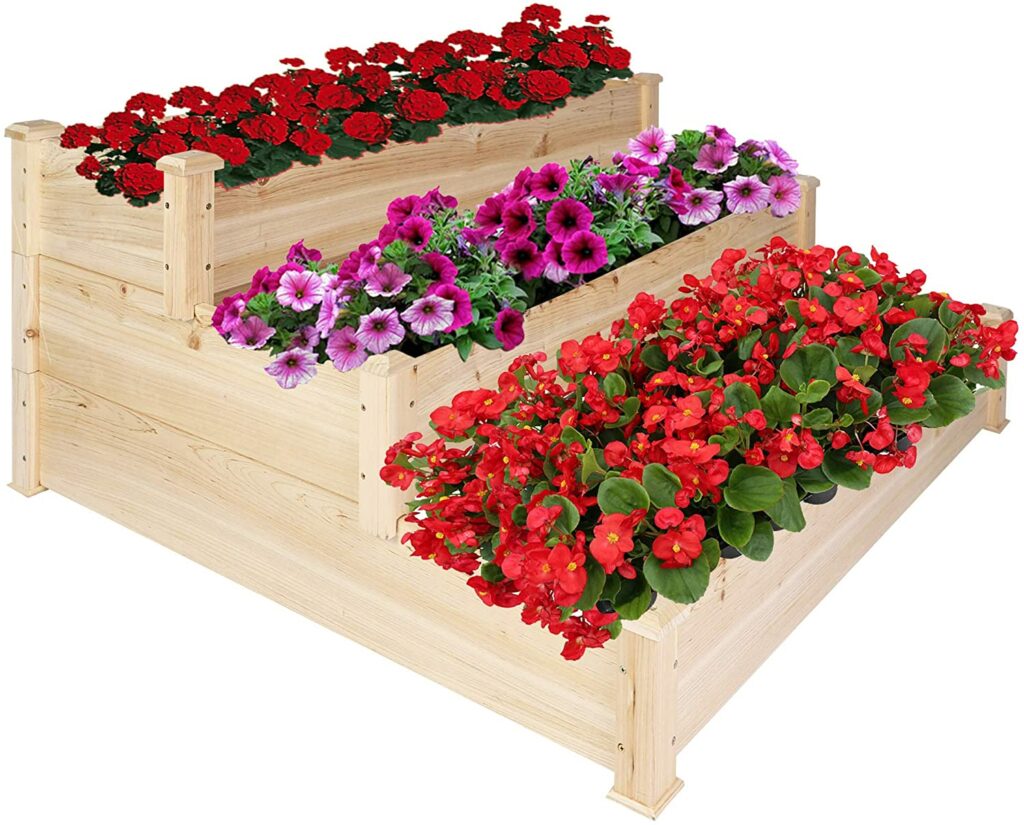
One of the easiest ways for you to protect your roses is to grow them in pots or raise the rose beds. It is recommended to increase the height by at least two feet. After that, you need to surround the raised bed with plants that are unappealing to cottontails.
3. Deter Rabbits With Scents
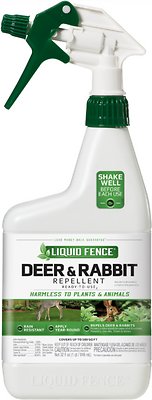
Another way for you to easily stop the furry critters from entering your garden is to deter them with scents that they do not like.
If you have dogs, encourage them to play and spread their scent around the garden. Having their scent on your garden will stop the cottontails from nibbling on your rose bushes.
You can also sprinkle, talcum powder, sulfur, or chopped onion around your plants. Another method is to chop up some chilis and add equal parts of hot water. Let it cool down and pour onto a spray bottle.
Spray this onto the leaves of your rose bushes while concentrating on the lower parts where rabbits can easily reach.
4. Grow Anti-Rabbit Plants
Did you know that cottontails hate strong scents and thick leaves?
They will definitely steer clear of plants with these traits. Growing plants that the bunnies hate is a nifty way to help your garden naturally fend off against rabbits.
It is best to grow them around your rose bushes to stop these furry critters from chomping on your precious rose bushes and other beautiful perennials.
Additionally, some plants are great companions for your roses. So, why not grow ones that not only stop bunnies from munching on your roses but also helps them grow better?
Here are some that will definitely help:
Flowers
When adding plants to your rose garden, it is best to choose one that has the same requirements for moisture, sunlight, temperature, fertilization as your roses.
The flowering plants listed below are not only a great addition to your rose garden but can protect them from rabbits, as well.
Lavender
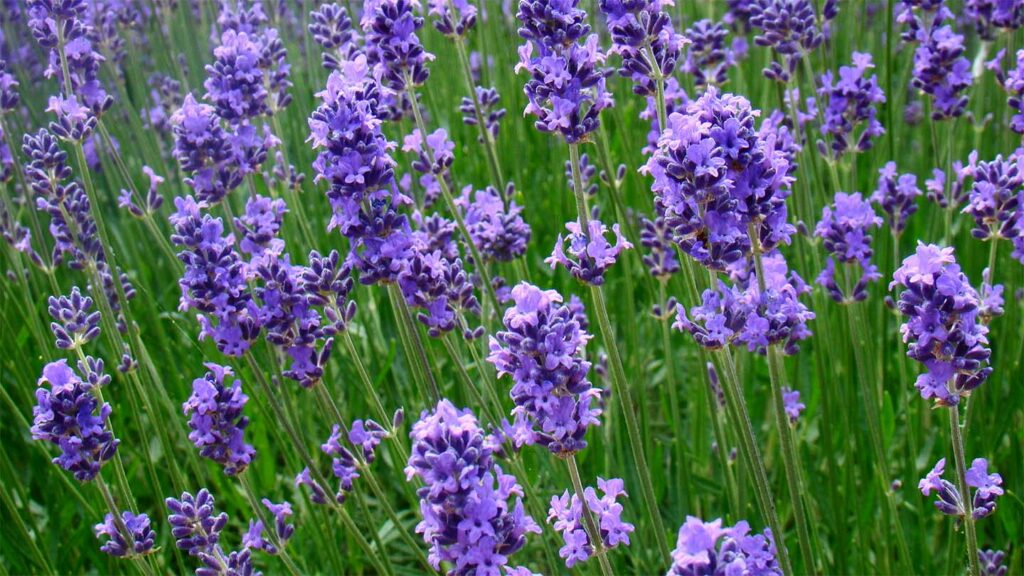
A classic partner for roses, with its strong scent and fuzzy flowers, lavenders are easily one of the best plants to grow with roses. The Munstead lavender can even survive winters in some states.
Black-Eyed Susan
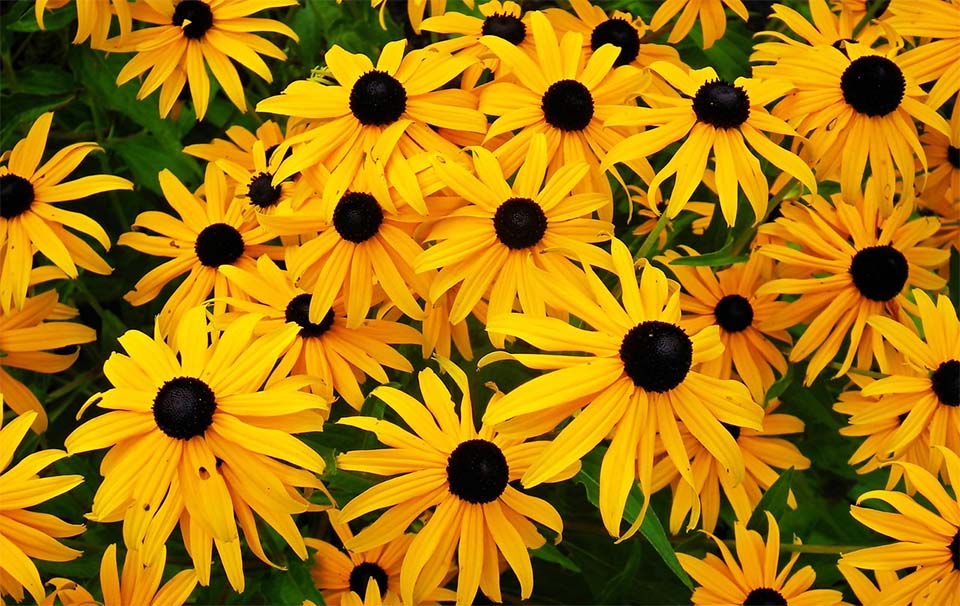
These beautiful wildflowers may attract pollinators like bees and birds but you can be sure that most wild bunnies will avoid them.
Black-eyed Susans have a sweet grassy fragrance at full bloom. However, this plant’s smell is quite strong for the rabbit.
Although planting this alone will not be enough, you can also add extra measures to make your rose garden unappealing to the furry bunnies.
Sweet Alyssum
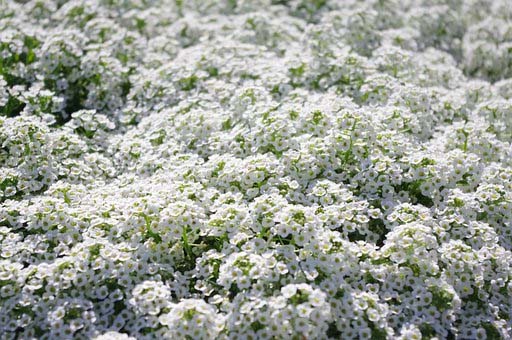
This plant comes in clusters of small flowers that come in a variety of colors like violet, pink, lavender, and white. Rabbits dislike dense foliage and the sweet alyssum creates a dense carpet on your rose bed.
It blooms all year round and enjoys a lot of sunlight. So, if you plan on growing these together with your roses, start sowing them when the frost has melted.
Marigold
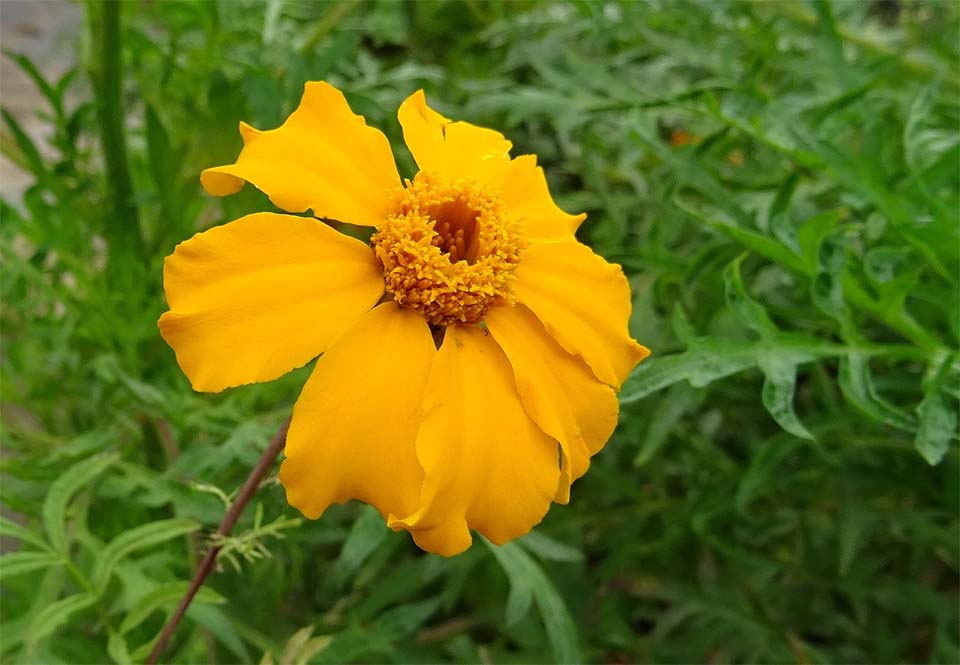
These big yellow blooms are great deterrents to any furry bunny that might find its way to your garden. Marigolds look a lot like daisies and chrysanthemums.
This flowering plant does not grow tall and will not cover your roses. Thus, it’s one of the best companion plants for it. Rabbits hate the strong fragrance of marigold and they can taste quite bitter when eaten which is why it effectively stops bunnies from munching on your rose shrubs.
Geraniums
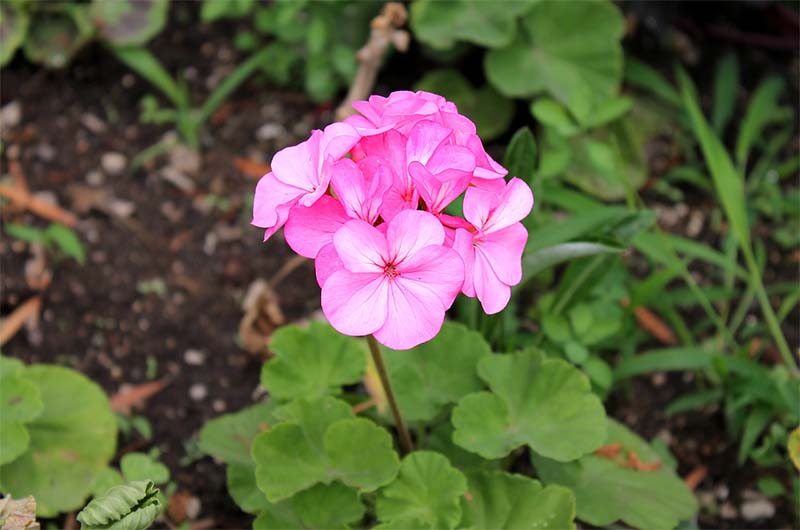
Geraniums can continually bloom all throughout the year if they have enough sun. Plenty of gardeners opt to grow them in pots, so they can bring them indoors during winter. You can also choose to plant them near your rose bushes.
Since geraniums have a strong pungent fragrance, rabbits tend to avoid them. Additionally, it has dense leaves which makes them very unappealing to any visiting rabbit.
Allium
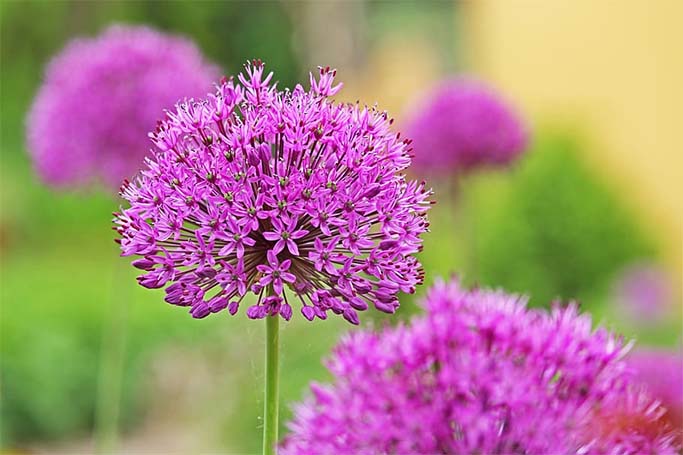
Did you know that all plants belonging to the allium or onion family are great companions for roses?
These plants do not only stop aphids from invading but rabbits and other rodents, as well.
Plus, flowering Alliums attract plenty of pollinators like birds and bees. They also stop your roses from developing black spots that damage the rose leaves.
What’s more, they are low-growing plants and will not stop your roses from receiving sunlight. All of the plants listed below have pungent smells and can basically grow anywhere.
- Onion
- Chives
- Garlic
- Leeks
- Ornamental Allium
These plants produce beautiful spherical flowers with colors that range from shades of pink, violet, blue, white, and yellow.
Herbs

Catmint
Often mistaken as is its cousin the catnip, catmint may look the same but does not stimulate cats. However, it still has a strong scent that rabbits dislike. It produces lavender-blue buds with dense foliage which is another reason for cottontails to avoid it.
Catnip
This plant may make even the laziest cat purr with joy. However, most rabbits hate its smell.
Because of its simple looking foliage, catnip can be planted near your rose bushes and will certainly not steal its spotlight.
Russian Sage
A plant that produces clusters of lavender-colored flowers, Russian sage is a great partner for your roses. What’s more, its leaves and stems have that signature sage scent that rabbits dislike.
Additionally, most of these plants do not only stop rabbits but other pests as well. So, you can enjoy roses without having to worry about them being eaten or damaged.
5. Clean Up the Garden
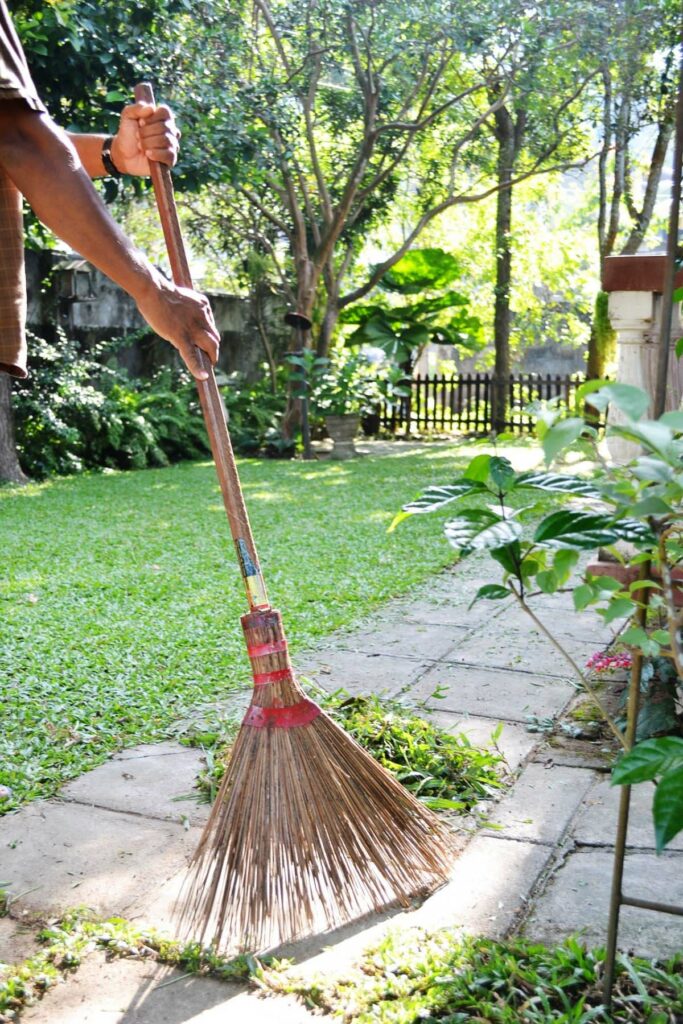
Unlike most of the tips that were mentioned above. This method does not aim to completely stop rabbits from entering your yard. Some of you might still want to spot a few of them in your rose garden for your impressionable youngster.
As animals, cottontails will always look for a safe place to feed. So, why not give them an alternative dining experience. They usually gravitate to places where they can easily hide their homes.
So rake up all those leaves and place them in a corner of your yard at a great distance from your rose bushes.
You can also grow plants that are tasty for them near those piles of raked up leaves and stems. Think of it as a way to control their movement in your yard. Just make sure that you have measures in place so that the little hoppers are not able to access the roses.
You might like: How to Get Rid of Colorado Potato Beetle in Your Garden?
Final Thoughts
Everyone may find cottontails cute but they can be quite a headache when they are munching on the roses that you have been painstakingly growing. However, you don’t have to resort to shooting them.
The best defense your garden can have is to be as unappealing for the rabbits as much as possible. Just follow the tips above and you will certainly have no problems when dealing with these cute critters.
References:
- When Rabbits invade the Garden
- Rabbit Tracks: Breeding Techniques and Management by Michigan State University
- Living in Harmony With Wild Rabbits by Peta
- How To Identify and get rid of Rabbits by The Old Farmer’s Almanac
